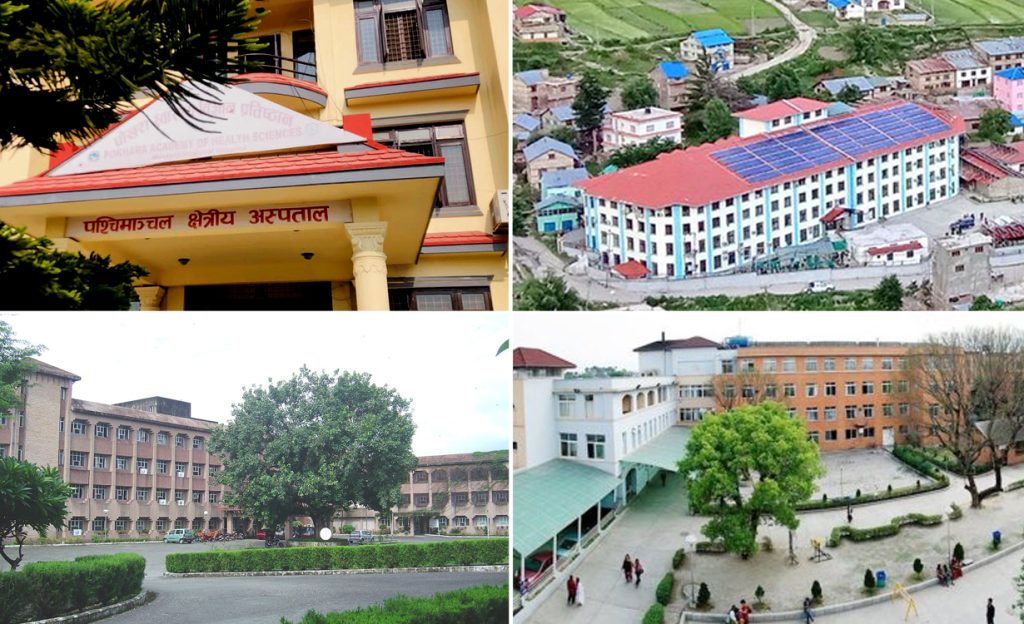Broadsheet dailies (both in Nepali and English) published in Kathmandu on Sunday, April 3, 2016 have chosen different issues for their front pages. While a few newspapers have a follow-up story on Nepal’s reaction to the Joint Statement issued after the EU-India summit in Brussels, others have given more prominence to social issues such as the fuel crisis and the problems facing the road expansion project in Kathmandu.
Gorkhapatra
Nepal’s state-run newspaper Gorkhapatra has given space (although just two columns) on its front page to the EU-India summit story. Quoting Deputy Prime Minister CP Mainali, the paper says that the government has decided to summon envoys from India and the EU to seek an explanation on why Nepal figured in the statement.
The Gorkhapatra has highlighted the Prime Minister’s “pledge to control black marketing”. According to the report, the Prime Minister, speaking to representative of Nepali Congress’ sister organisations in Baluwatar, also said the government was “discussing the issue with stakeholders.” The same report says that the Prime Minister has assured the opposition that the government will bring an ordinance (if need be) only after receiving consent from Nepali Congress. This comes as NC president Sher Bahadur Deuba warned the government not to change the structure of the judiciary through an ordinance.
Annapurna Post
Annapurna Post has a follow-up story on the EU-India summit. The paper says that Nepali Congress and the Madheshi Morcha have ‘backed’ the statement. However, the story neither directly quotes a Nepali Congress leader nor refers to any formal announcement from the party. It quotes Madheshi Morcha leader Rajendra Mahato as saying that the statement was only natural, given the way India was sidelined during the constitution-making process in Nepal.
The paper’s main story is an explainer on the implications of the recently concluded transit treaty between Nepal and China. It says that both governments will make sure the treaty is not used to smuggle weapons. As per the agreement, the transit pact shall be renewed automatically every 10 years, and if any side wants an amendment it has to do so six months before the renewal date. As per the deal, Nepal will be allowed to use Chinese ports and railway under a protocol, which will be finalised soon.
Naya Patrika
The newspaper has given prominent space to a story on how the government is not listening to the parliamentary committees. The main story is a package comprising reports on how the committees concerned are dealing with the Chameliya hydro and the controversy about the procurement of tarpaulins immediately after last year’s quakes. The story also has a list of committees and their respective jurisdiction. There is also a report on how top leaders of the ruling UML party plan to deal with differences about the organisation committee of the party.
The Himalayan Times
The newspaper in its lead story says that the government is likely to directly call a session of Parliament to discuss the budget, without calling another brief session to resolve the controversy surrounding the passage of new parliamentary regulations. The opposition has been demanding such a session, and it has warned the government not to bring ordinances. Quoting NC chief whip Chinkaji Shrestha, the report says, “The government is attempting to pass the bills (especially those related to the judiciary) through ordinance by delaying the Parliament session so as to make unilateral appointments, even that of justices.”
The newspaper has on its front page run a three-column story on how Nepal’s postal system is in need of restructuring. “The 138-year-old government postal service is now in need of restructuring,” the paper writes. According to the report, the government spends Rs 3 billion each year on postal services, 90 per cent of which is spent on paying staffers. “The number of letters sent through the postal service has declined by 80 per cent,” says the report without specifying the timeframe.
Nagarik daily has a story on the shortage of gas and petrol, and how poverty and students’ inability to communicate in Nepali is contributing to high dropout rates in government schools in the eastern district of Jhapa.





















